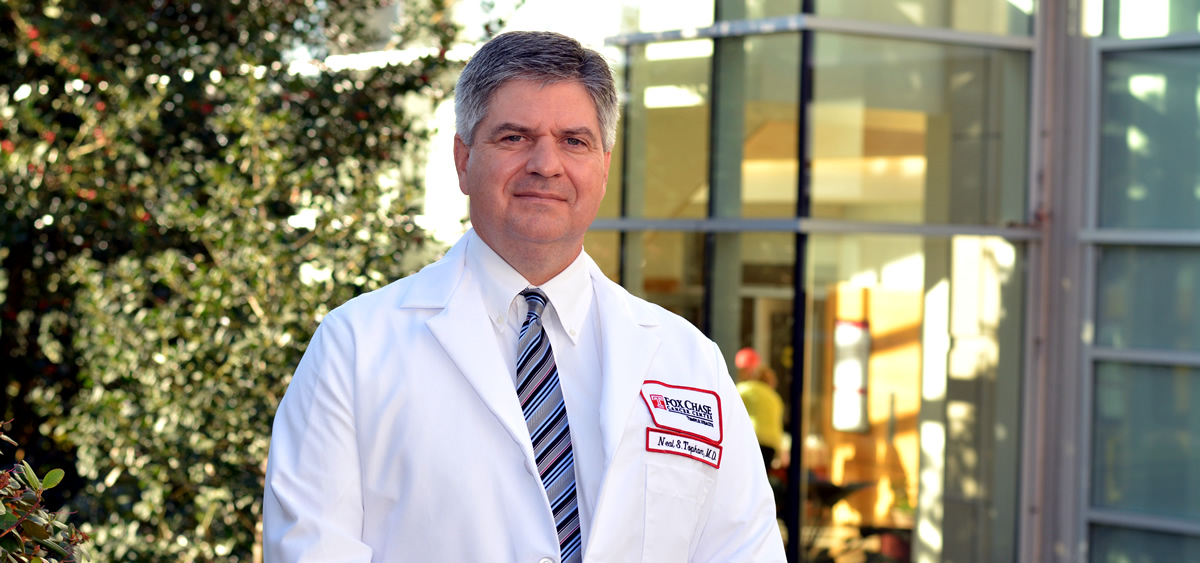
PHILADELPHIA (February 20, 2020) — A surgeon at Fox Chase Cancer Center pioneering the use of a new resorbable mesh to minimize the risk of hernias and bulges after bilateral flap breast reconstruction has published positive two-year results.
“For this breast reconstruction we harvest tissue from the abdominal wall and transfer it to the breast,” said Neal S. Topham, MD, FACS, chief of Plastic and Reconstructive Surgery at Fox Chase. “When the patient’s abdomen is closed, some surgeons will close using sutures, but that method may result in bulges or hernias.”
Instead, mesh can be used to reinforce the abdominal wall. Historically, a polypropylene mesh has been used. However, these polypropylene mesh supports are permanent and pose additional risk for subsequent infection.
In a recent study, the first to investigate the optimal type of mesh to use, Topham and colleagues at another center compared the use of sutures, polypropylene mesh, and the new resorbable mesh, Phasix, at the abdominal site for free flap reconstruction.
“This new mesh dissolves,” Topham said. “It acts like a temporary splint while the abdominal tissues heal and then disappears.”
Looking back at 66 patients who underwent bilateral flap breast reconstruction, six patients were closed using sutures, 20 with polypropylene mesh, and 40 with resorbable mesh. The patients were followed for a minimum of two years.
Use of the resorbable mesh resulted in higher initial operative costs compared with the other two methods, but resulted in a lower rate of early wound complications and no long-term abdominal bulges or hernias.
“Even though initially this material may be more expensive, there is money saved by using it because of the decreased seroma rate, the decrease in bulge, and the decrease in return to the operating room for repair of bulge,” Topham said. “It provides a stronger repair of the abdominal wall that stays in place until the natural tissue can once again support it.”
The paper, “Comparison of Phasix, Polypropylene, and Primary Closure of the Abdominal Donor Site After Bilateral Free Flap Breast Reconstruction: Long-Term Evaluation of Abdominal Hernia and Bulge Formation,” was published in Microsurgery.